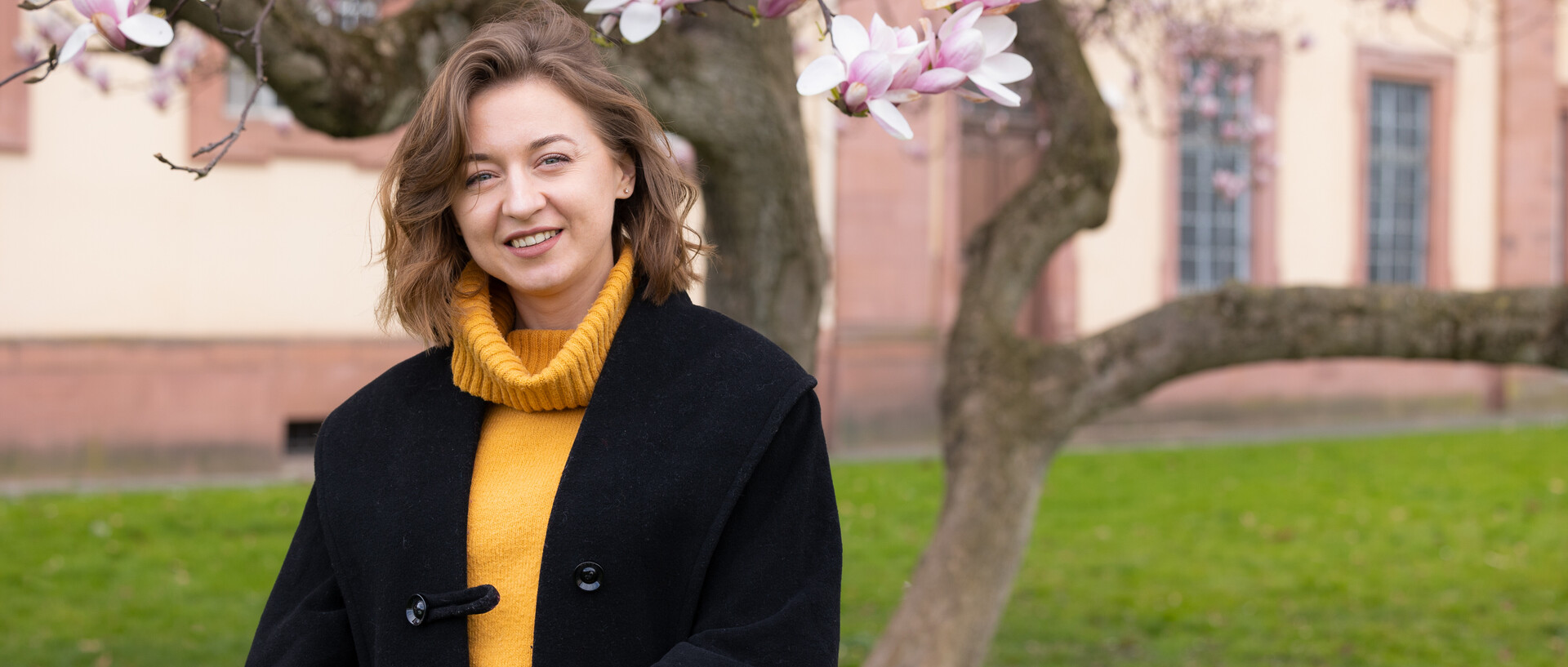Alina Ivanenko
Alina Ivanenko comes from Tschernihiw city, located in the northern region of Ukraine, near the borders of Belarus and Russia. She holds a Doctor of Historical Sciences degree, which is a notable achievement in Ukraine as it requires defending two separate dissertations. With over 60 published scientific and methodological articles to her credit, Alina has made significant contributions to her field of study. Currently, she resides in Germany with her six-year-old daughter, having moved here a year ago.
When did you decide to leave Ukraine?
My daughter and I have been living in Germany for one year now. My husband is still in Ukraine, and we haven't seen each other since I left Ukraine. It's been very hard for him and for our daughter. We had a beautiful life before 24 February 2022, but everything changed that day. First, we lived with my husband's parents for ten days, taking shelter under the floor as the Russian army bombed us day and night, sometimes every hour. After eight days, we realized we needed to save our daughter. She was terrified and scared. So, we made the difficult decision to leave.
Is your husband still in Ukraine?
Yes, he couldn't leave the country, so it was a tough decision for us to leave. At first, I wanted to go to the western part of Ukraine and wait there. But my husband suggested that we go to another country where we would be safer.
Why did you choose to come to Mannheim?
I have a friend from my university days who lives in Germany, near Essen. My daughter and I stayed at her place for four months after we left our country. Once I was in Germany, I tried to find opportunities for myself because I realized that I didn't want to sit idle and receive social and financial support. Last spring, many universities in Germany offered scholarships to Ukrainian academics, and I was fortunate to receive one from the University of Mannheim. So, I have been starting my new life here in Mannheim since July 2022.
How has your start been here?
As a single mom, it was really complicated and difficult. My daughter and I both got sick, I had to stay at home, change my plans and fix everything by myself. But I also had to work. I currently have a teaching job in Mannheim, where I am teaching a course on the history of state and law in Ukraine for the spring semester. However, I need to improve my English and I also need to learn German because I need it for my daily life here. I am not sure how long I will stay in Germany, but for as long as I am here, I need to understand and be able to communicate.
How are you getting on with German?
German is very complicated for me, but not for my daughter. She has been in kindergarten since September 2022, and she already speaks German fluently. When I do my homework in German, I often have to ask her for help, and she translates for me.
You've written two dissertations. Your first was about the history of local educational institutions at the beginning of the 19th century. Now you are focusing on the occupation policy of Ukraine in the early 1940s. Could you tell us more about that?
Actually, my research is in the field of civil history, not war history. I am working on the state and judicial system in the “Reichskommissariat Ukraine” during the German occupation during World War II. My dissertation is mainly about the life of people under this occupation. In my research, I have studied criminal and civil legal proceedings. These played an important role in social life and in solving urgent legal issues.
So there was an official justice system under the German occupation? What procedures were handled there?
In every society, there is a need for legal regularities, so the German administrators created courts, law offices and notary organizations to regulate the observance of laws among the population. Locals worked there, and the German authorities were primarily concerned with entrusting local judges with purely routine and functionally straightforward tasks, such as determining and recording changes in personal status or the right to issue identity papers. Every person had the right to go to a lawyers’ organization, to get legal aid, and to find out about their rights.
Can you provide an example?
The courts had to resolve issues of social life, such as alimony or inheritance rights. Former judges testified that they mainly heard cases of residents who committed minor crimes, such as theft, brawls, personal insults, forgery of documents, or clandestine slaughter of livestock.
How do you approach this methodically?
So far, however, I have based my research only on Ukrainian sources that I found in our archives and libraries. Now I am in Germany and can study German sources. I hope that someday my German will be good enough to read and translate them myself.
In your research, you have studied war and oppression extensively?
That's true. I wrote a 400-page dissertation about war and people living under occupation. I never thought that I would experience it myself. Now, being away from my country for a year and seeing people living under occupation, it is very difficult.
What do you wish for the future?
I simply wish for a peaceful life. I believe that would be enough for all of us.
Text: Moritz Klenk
